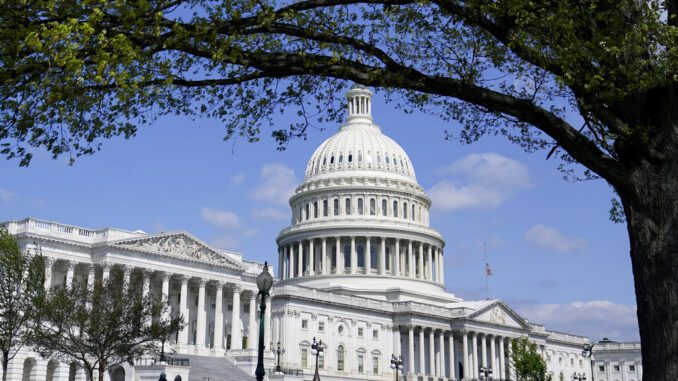
There is a move afoot in Washington where, by executive order, debt will magically be canceled for forty-six million adults, 16% of all households, who owe $1.75 trillion in student loans. According to a 2019 Federal Reserve report, “5.4% or 7.1 million households have $50,000 or more in student loan debt…45% of households led by a person age 25-40 in the top 1% of overall income have student loan debt”.
60% of all student debt was used for graduate school, not undergrad. Many of these people have gone on to become wealthy doctors, lawyers and business executives who can afford to pay back their loans, just like everyone else who has debt has to pay.
We live in 21st-century America where economics, law and common sense rule, not some genie in the bottle waiting to grant everyone’s wish.
Will canceling student debt mean every newly-freed debtor will contribute something of substance for the entire nation as a “public good” ― will it just help the borrower get out of debt? As a condition for debt relief, the debtor should be asked to contribute his or her services gratis at the very minimum until the value of their loan is discharged in some public policy manner such as providing medical care to Medicaid patients in rural areas or legal services to the poor.
Generally, the difference between the two major parties historically has been between reliance on personal freedom and responsibility (Republicans) and collective government support in almost every sector of our lives together (Democrats).
Since people decided they could live together and not hermitize themselves on small self-sustaining farms or kill what their families eat every day by hunting, they agreed that any civilization needs a few overarching laws and rules under which everyone will abide and live peaceably together. Without a common set of rules and values, we would be living in a state of chaos which Thomas Hobbes said would be “nasty, brutish and short” because it would be survival-of-the-fittest Darwinism every second of the day.
The “public good” is better when everyone enjoys the same things common to every citizen ― personal freedoms and property rights protected by law, a just judicial system and law enforcement agency. Life is good when public roads are built and maintained; clean water and clean air are available to every citizen and we are protected from physical harm from enemies from abroad and domestic criminals from within.
Thomas Jefferson and Abraham Lincoln recognized the benefit of solid public education since if the broad populace was uneducated, the chances of maintaining a self-governed democratic republic was slim. While public education is not explicitly enumerated in the Constitution, most conservatives can agree that collective government expense on public education benefits the “public good” as long as teachers stick to teaching the basics of reading, writing and arithmetic.
Jefferson and Lincoln would not consider paying for graduate school debt incurred by upper-income adults as “public education”. Such debt was assumed by adults for private purposes, not the public.
Liberals see a far more expansive interpretation of “the public good”. They view everything as being under the purview of a benevolent government administered apparently by all-knowing philosopher kings who are seldom seen or elected to public office.
The meaning of “public good” to liberals includes free education, free health care, free housing and free food, shelter and clothing to those who need it. Liberals also see a healthy dose of government coercive intrusion into moderating individual’s speech and thoughts on views they, the left, sees as objectionable ― which usually just means they disagree with it.
American liberalism has taken the United States from a state of being where the government exists to serve and protect people as they pursue their own individual dreams and path in life to one where the government exists to tell everyone what to do and say and give them money taken from other people.
It is almost the antithesis of the principles of freedom America was founded upon 246 years ago. The public good means everyone should benefit― not just a select few.



